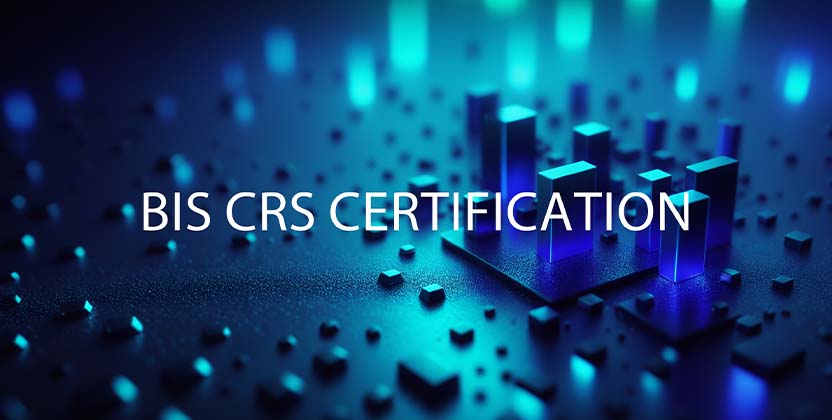What is FMCS BIS Certification ?
Foreign Manufacturers Certification Scheme (FMCS) is a Scheme operated by the Bureau of Indian Standards since year 2000 under Scheme-I of Schedule-II, BIS Act, 2016 and (Conformity Assessment) Regulations, 2018 for foreign manufacturers. This scheme enables the overseas applicants/manufacturers to use the standard mark, which is also called ISI Mark, to sell their products in India. The foreign manufacturers Certification Department (FMCD) is the only eligible authority that can grant BIS Certificate for import to the foreign manufacturers. The major motive of BIS for granting a Manufacturing certificate to foreign manufacturers is that the public gets good quality, safe, reliable and risk-free products.
BIS FMCS Certificate in India from the FMCD department is meant for the manufacturing units located overseas, and which will undergo for factory audit to determine whether the manufacturer is complying with all the necessary requirements illustrated by BIS. It is also mandatory for foreign applicants to nominate Authorized Indian Representative (AIR). To understand all these steps, let's explore the parameters in detail.
So it is mandatory for the foreign manufacturers to obtain a BIS Certificate for Import in India under FMCS Scheme for uninterrupted exporting and selling their products in the Indian market.
Importance of FMCS BIS Certification in India
It is necessary to get FMCS BIS Certification in India for mandatory products. Without this Certification, the manufacturers are not able to sell their products in the Indian Market. So, with this certification you can get easily access to Indian Market, avail legal benefits and more. Obtaining FMCS BIS Certification is very tedious and complex process.
Who Can Apply Under FMCS?
Following points should be taken into the consideration by the manufacturers while applying for ISI Certificate:
• Make sure that all products are classified under Indian Standards Specification.
• At the factory premises, all the manufacturing facility should be available. (Sub-contracting of process is allowed)
• Testing of the products as per Indian Standards Specification (ISS), proper arrangement for the same must be available at the factory premises.
• The scheme of testing fees must be accepted by the manufacturer.
• Company must accept the Terms & Conditions of Certificate.
Products Covered Under FMCS BIS Certification
Documents required for FMCS Certification
The documentation part under the FMCS BIS Certification scheme of BIS is quite simple. Following are the essential documents, must be available with the applicant before initiating the project:
- Factory/company registration documents
- Flow chart of manufacturing process chart
- Quality Control Parameters and their records
- Accept Scheme of Testing & Inspection and Annual Marking fee, laboratory product testing report and other information as per BIS norm and so on
Process for Foreign Manufacturer
Follow the given steps to complete your BIS/ISI certification process:
Step 1: Application Submission
• Gather all the necessary documents
• Submit the application fee along with the documents
• Allotment of Application Number
• Application scrutiny within the specified timeframe
Step 2: Query Raised (If Any)
• Notification regarding any missing documents or non-compliance
• Submission of a response within the designated period
Step 3: Inspection (Audit)
• Payment of the Inspection/Audit Fee
• Selection of an Inspecting Officer
• Scheduling the itinerary based on availability
• Conducting a 3-man-day inspection of the manufacturing unit
Step 4: Sample Testing
• Examination of samples on the factory premises during the audit
• Sealing and collection of samples to be sent to a BIS-approved Laboratory
• Receipt of Test Reports by BIS (FMCD)
Step 5: Grant of License
• Confirmation of sample passage and notification to pay the Marking Fee and License Fee
• Issuance of a Letter granting the License
Step 6: Indemnity & PBG
• Signed Agreement or Indemnity Bond by the Authorized Indian Representative
• Submission of a Performance Bank Guarantee (PBG) amounting to USD 10,000
Note: Payments should be made in USD to the BIS Account.
Standard Costing and Timeline
Costing for BIS/ISI Certification
Please reach out to our team and provide your product details so that we can offer you a personalized quotation for the cost of BIS/ISI Certification.
Contact information: +91-9266333338 or +91-8800013897
Timeline for BIS/ISI Certification
For Indian manufacturers: Approximately 25-40 working days
For Foreign manufacturers: Approximately 5-6 months
Is obtaining an FMCS BIS certificate mandatory?
Yes, it is essential to obtain FMCS for mandatory products. Without a certificate, you won't be able to sell your products in the Indian market.
Thus, to gain easy market access, legal benefits, and more, a manufacturer should obtain the FMCS BIS certificate.
List Of Products of FMCS BIS.
- Electrical goods for the home
- AA Batteries
- Food Items and Associated Items
- Pressure-Stove Oil
- Car Accessories
- Cylinder, Regulator, and Valves
- Medical Devices.
- Products Made of Steel and Iron
- Transformers for electricity
- Polymers, textiles, chemicals, and fertilizers
- Water heaters for homes that run on LPG
- Temperature Sensing Controls, Hermetic Compressor, and AC and its related parts
- Plugs, socket outlets, and direct-connected static prepayment meters for alternating current used in active energy.
FMCS BIS Certification Requirements
Foreign manufacturers who wish to sell their goods to India must meet all of the prerequisites listed below:
- The production facilities must to be situated outside of India.
- The foreign manufacturer or business must agree to the license's terms and restrictions.
- To test the product in accordance with ISS, an internal lab equipped with equipment for product testing and quality control staff should be available.
- Verify that the product or products they offer comply with the relevant Indian Standards Specifications.
- The annual marking fee and the SIT, or Scheme of Inspection and Testing, should be accepted by the Manufacturer.
- All manufacturing equipment and testing facilities ought to be provided at the industrial units.
Conclusion
Obtaining FMCS BIS Certification involves a systematic process. From paperwork and filing to verification, audit, and testing, each step ensures adherence to BIS standards. Upon satisfactory inspection and test reports, license issuance follows, accompanied by the signing of an indemnity bond and providing a performance bank guarantee. Our expert team streamlines this process, ensuring compliance and facilitating market entry in India. With meticulous attention to detail and adherence to regulatory requirements, we ensure a smooth certification journey for manufacturers, enabling them to access the Indian market confidently and efficiently.
 Noida, Delhi NCR
Noida, Delhi NCR
 Mon-Sat : 09:30 AM - 06:00 PM
Mon-Sat : 09:30 AM - 06:00 PM



